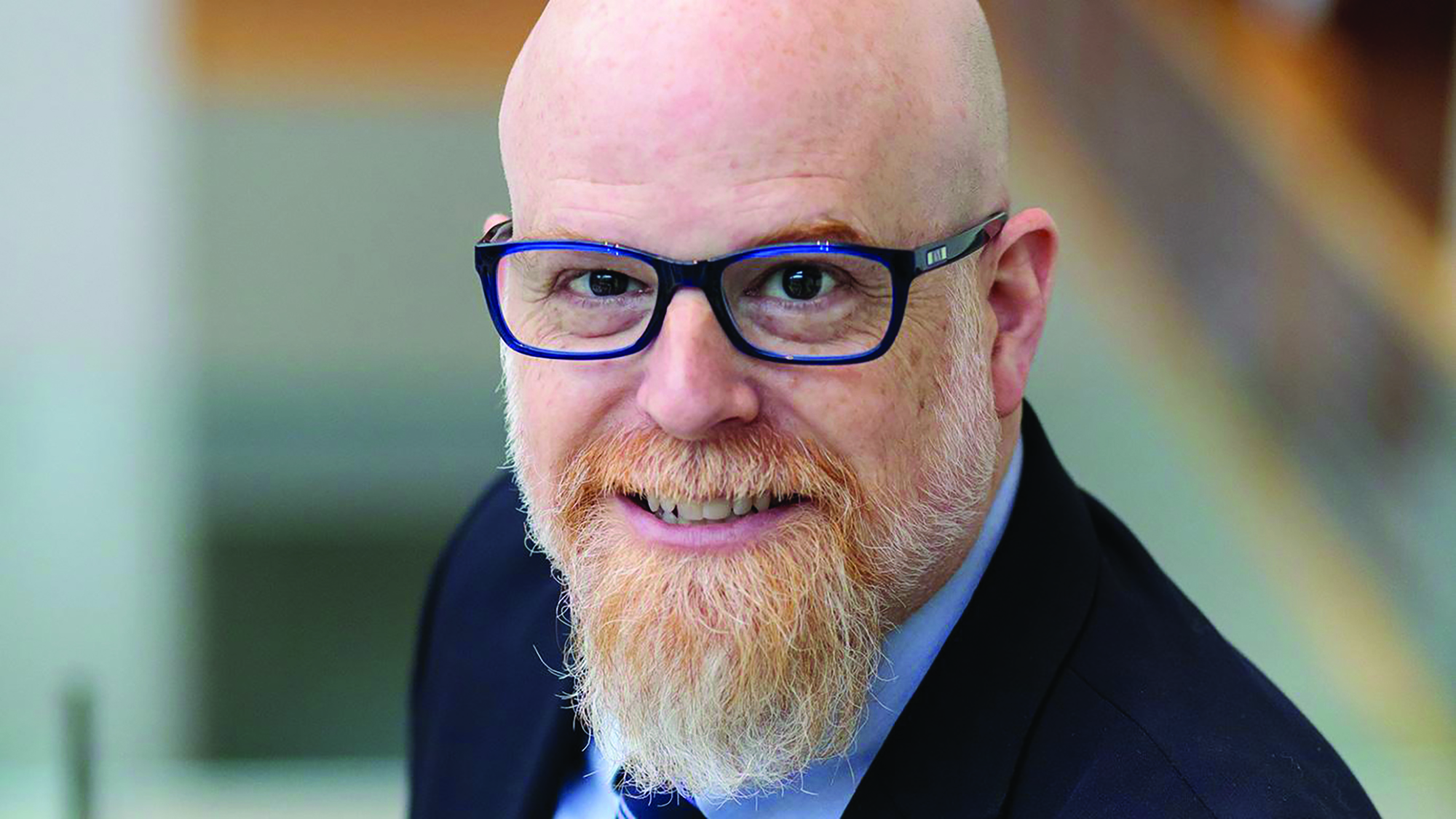
Erik Hurst, the Frank P. and Marianne R. Diassi Distinguished Service Professor of Economics and the John E. Jeuck Faculty Fellow at Chicago Booth, was appointed director of the Becker Friedman Institute for Economics in January. (Chicago Booth)
A selection of the latest headlines from across campus.
Five years, two degrees
In the 2023–24 academic year, the University established the UChicago Advanced Scholars “4+1” program, which allows College students to complete a bachelor’s degree and a master’s degree in five years. The program will streamline graduate admissions for College students and help improve students’ job or educational outcomes. Proposed by President Paul Alivisatos, AB’81, and implemented by Provost Katherine Baicker; vice provost and UChicagoGRAD faculty director Jason Merchant; and the deans of the participating departments and divisions, the program was piloted during the 2022–23 academic year with nine master’s programs in four divisions. This year the program has expanded to offer 24 master’s programs across seven divisions and schools.
Lifting burdens
The University of Chicago Medicine recently abolished $173.7 million in debt for patients who received care at its facilities in Hyde Park; at UChicago Medicine Ingalls Memorial Hospital in Harvey, Illinois; or through the UChicago Physicians Group. The debt erasure—part of a collaboration with the Cook County Medical Debt Relief Initiative—went toward a goal of abolishing $240 million in medical debt for more than 123,000 UChicago Medicine patients. Debt cancellation averaged about $2,043 per patient, and more than 75 percent of patients’ households reported an annual income below $51,000. Debt relief eligibility is based on income, or on the percentage of debt related to income, and all qualifying accounts will automatically have their debt erased.
Theory icon
In January W. J. T. Mitchell, the Gaylord Donnelley Distinguished Service Professor in English Language and Literature, Art History, and the College, received the Modern Language Association’s Award for Lifetime Scholarly Achievement for his research in iconology and his 42 years as editor of the humanities journal Critical Inquiry. Mitchell, who joined the University in 1977 and retired from teaching this year, studies the relationship between words and images. As the second and longest-serving editor of Critical Inquiry, Mitchell expanded the reach of the journal and widened its range of topics, helping to create what the New York Times has called “academe’s most prestigious theory journal.”
Institute leadership
In January Erik Hurst, the Frank P. and Marianne R. Diassi Distinguished Service Professor of Economics and the John E. Jeuck Faculty Fellow at Chicago Booth, was appointed director of the Becker Friedman Institute for Economics. Hurst has served as the deputy director of BFI since 2017 and succeeds Michael Greenstone, LAB’87, who has led the center since July 2017. Greenstone, the Milton Friedman Distinguished Service Professor in Economics, the College, and the Harris School, and director of the Energy Policy Institute at the University of Chicago, was recently appointed the inaugural director of the University’s new Climate and Energy Institute.
Primordial knowledge
The National Science Foundation (NSF) has awarded $3.7 million to UChicago as part of a potential $21.4 million grant to fund the final designs of a next-generation set of telescopes. A collaboration led by UChicago and Lawrence Berkeley National Laboratory seeks to build telescopes and infrastructure in Antarctica and Chile to map the light from the earliest moments of the universe—the cosmic microwave background. The project, known as CMB-S4, involves 450 scientists from more than 100 institutions spanning 20 countries and is expected to cost $800 million by the time it comes online in the early 2030s.
Training police leaders
The inaugural cohort of the UChicago Crime Lab’s Policing Leadership Academy graduated in October. The academy is the only police management and leadership training program in the United States specifically designed to increase safety and fairness in the nation’s most violent neighborhoods. The 25 members of the cohort are rising leaders in 24 police departments, including those of Chicago, Philadelphia, Dallas, and New York; these cities, collectively, account for more than 20 percent of homicides in America. The academy’s practical and interactive six-month curriculum covers inclusive and ethical leadership, risk management, trust and constitutional policing, and strategic thinking.
PSD Dean Olinto named Columbia’s provost
On March 1 Angela Olinto, dean of the Division of the Physical Sciences, will become provost of Columbia University. At UChicago for 33 years, Olinto, the Albert A. Michelson Distinguished Service Professor in the Department of Astronomy and Astrophysics, has led the Physical Sciences Division since 2018. She was the first woman in the division to be tenured, to chair a department, and to serve as dean. Former UChicago provost Ka Yee C. Lee, the David Lee Shillinglaw Distinguished Service Professor of Chemistry, has been named interim dean.
